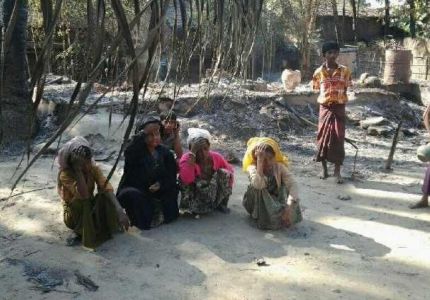Local Muslim authorities say that
deaths from diseases and severe conditions are likely to continue until
Thailand's government recognises that thousands of Rohingya, being
smuggled
through Thailand, should be accorded basic human rights.
''The men we buried today were
aged 16 to 40,'' said Isma-Aen Mat-Adam, of the Rohingya Help Network in
Thailand. ''All of them died after being 'rescued' from the secret
jungle
traffickers' camps. Hospitals could not save them
''These deaths show how bad the
conditions are in the jungle camps and in Thailand's detention
centres.''
The men had been confined by Thai
authorities and by traffickers in a serial rights abuse since January
last
year.
In the hospital, where doctors
and nurses tried to save the men from the ravages caused by constant
cramped
confinement at the hands of Thai officials and traffickers, the nameless
dead
men were recorded on official documents as ''Rohingya One,'' ''Rohingya
Two,''
''Rohingya Three'' . . .
The first man died on January 30.
Another perished on February 1. The third death followed on February 2.
Two
more came on February 4 . . . it's likely their family and friends are
among
more than 700 Rohingya still being held in southern Thailand.
The boatpeople were ''rescued''
by Thai authorities late last month from two secret jungle camps, little
more
than animal pens with earthen floors and no room for the captives to
stretch or
stand.
Twenty-four men who were unable
to walk were left after the ''rescue'' to fend for themselves in the
jungle at
one corral site, said the Chairman of the Muslim Committee of Songkhla
province, Sakkeeya Binsala.
For many, it was the second time
in the traffickers' camps, having been previously ''rescued'' in January
last
year then confined for all the intervening months in cramped Immigration
or
police cells before being ''deported'' into the arms of waiting
traffickers.
And around they go again, seeking
sanctuary in Malaysia . . . but finding only a kind of hell in Thailand.
A final resting place ends long and cruel treatment for five Rohingya



